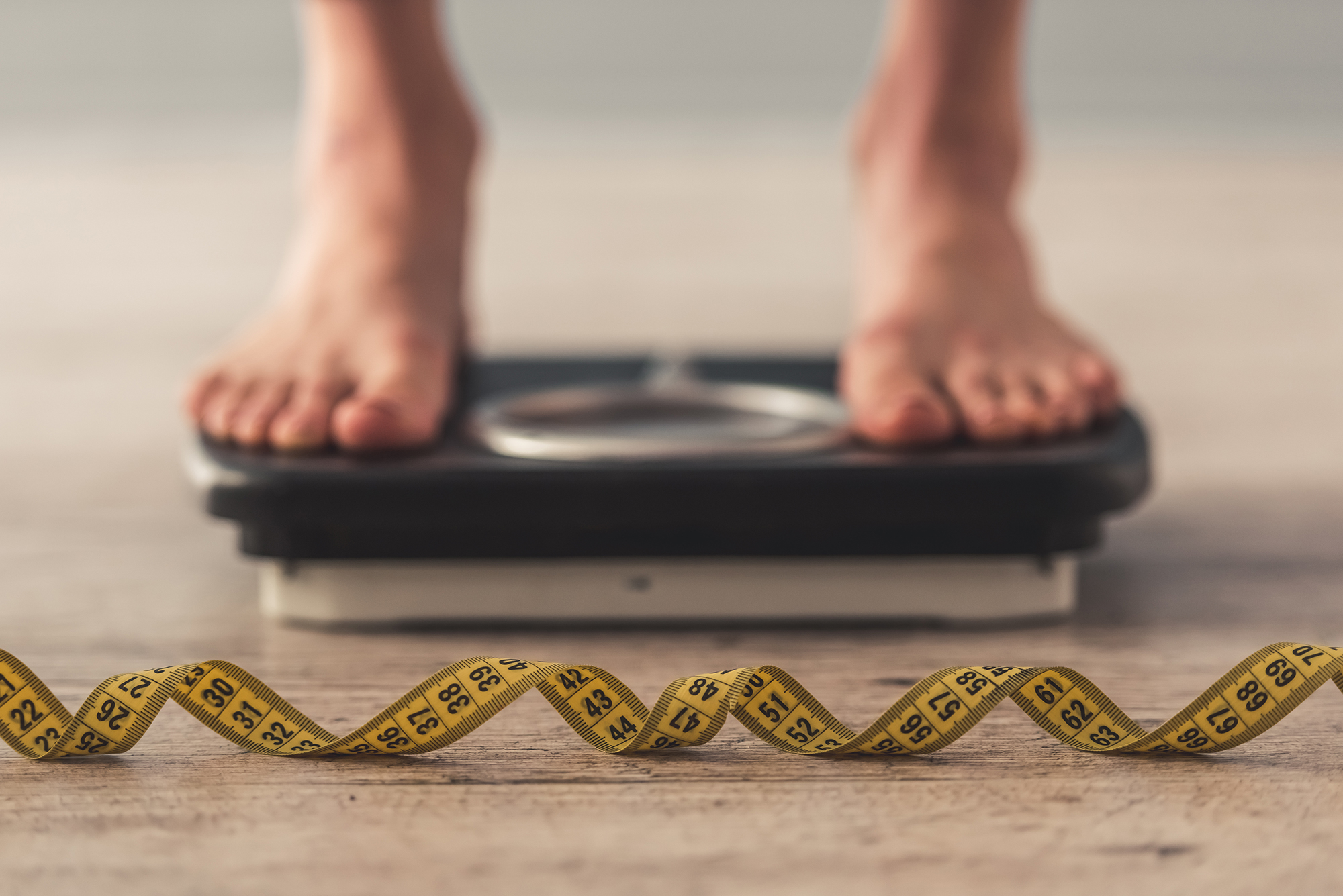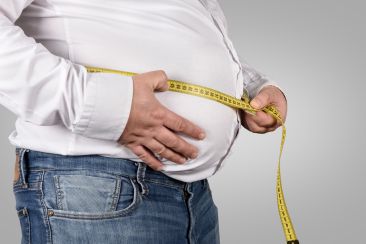
How to Break a Weight Loss Plateau and Start Losing Again - Weight Loss Coach
How to Break a Weight Loss Plateau and Start Losing Again
A weight loss plateau occurs when your progress stalls, despite maintaining healthy habits. You can break it by adjusting food intake, exercise, sleep, and stress levels.
You have been eating better, moving more, and trying your best to live a healthy life. At first, the weight came off. However, the scale is now stuck, and nothing seems to be changing. This is known as a weight loss plateau, and it can be very frustrating.
A weight loss plateau occurs when your body stops losing weight, despite continuing to engage in the same healthy habits. It may feel like all your hard work is going to waste, but that is not the case. This is a prevalent part of losing weight.
Your body is smart. As you lose weight, you use less energy. This means you may need to make small changes to keep seeing progress. Factors such as your metabolism, hormones, or even the amount of physical activity you engage in without thinking can all impact your results.
The good news is that you don't have to stay stuck. In this guide, we will explain why plateaus occur and provide you with clear, straightforward steps to help you move forward. Whether you're just starting or have already lost a significant amount of weight, you'll find helpful ideas here.
Why Do Weight Loss Plateaus Happen?
You have been eating better, exercising more, and sticking to your plan. But suddenly, your weight stops going down. This can feel upsetting, but it is not your fault. It happens to almost everyone. Your body is simply trying to adjust and maintain balance.
Here are three main reasons why this might be happening:
Your Body Uses Less Energy Now
When you lose weight, your body becomes smaller in size. A more petite body needs fewer calories to work each day. To maintain your weight loss, consider eating a little less or increasing your physical activity.
Also, when you lose weight, you may lose some muscle. Muscle helps your body burn more energy, even when you are resting. If you lose muscle, your body burns fewer calories, and this can slow down the process. This is called a slower metabolism.
You Might Be Eating More or Moving Less Without Noticing
Sometimes, we eat more than we think. Little snacks, drinks, sauces, or bigger meals can sneak in without us realising. Even being just a bit off can stop progress. This is called calorie creep.
Additionally, when people lose weight, they often become less active without realising it. This includes walking less, standing less, or not fidgeting as much. These small movements are referred to as NEAT (Non-Exercise Activity Thermogenesis). NEAT can burn up to 2000 calories per day, according to NASM.
Your Hormones and Brain Try to Keep You the Same
Your body has a system that helps you stay at a steady weight. When you lose weight, your body might think something is wrong. It may send signals to make you hungrier or more tired. This occurs due to changes in hormones such as ghrelin (which stimulates hunger), leptin (which signals fullness), and cortisol (linked to stress).
How do you know when you’ve hit a plateau?
Your weight loss stops whenever you reach a plateau, regardless of how well you adhere to your new diet or exercise program. Your energy levels may also drop. The body holds on to every calorie because your metabolism slows down.
Furthermore, you may begin craving more food as ghrelin, the hunger hormone, sends signals to your brain to eat more. The feeling of being full after eating may also decrease for some people. As body fat is lost, fewer hormones are available to tell you whether you're full, which means you'll be less full as you lose fat.
Common Plateau Causes and How to Fix Them
|
Cause |
What Happens |
What to Try |
|---|---|---|
|
Lower metabolism |
Less energy burned |
Increase protein and strength training |
|
Eating more than realised |
Hidden calories |
Track food and weigh portions |
|
Hormonal adaptation |
More hunger, less fullness |
Manage stress, improve sleep |
|
Less movement |
NEAT decreases |
Walk more, add daily activity |
|
Body adaptation |
Energy balance stabilised |
Mix up workouts, consider medical support |
Check What You Eat and Make Simple Changes
If your weight loss has stalled, one of the best things you can do is reassess your eating habits. Even small mistakes in your meals or snacks can have a significant impact over time.
Here are some easy steps to help you spot what might be going wrong and how to fix it:
Start Tracking Your Food Again
Many people think they are eating the same as before, but small things often change. You might be having larger portions or extra snacks without realising. Even healthy foods can slow down weight loss if you overeat them.
Try keeping a food and drink diary for a few days. You can use a notebook or an app like MyFitnessPal or Lose It! This will help you see if you are eating more than you think.
Watch Your Portion Sizes
It's easy to eat more than you need without realising it. Even a spoonful of peanut butter or a handful of nuts can add a lot of calories. Use measuring cups or a food scale for a while to get used to the right amounts.
Also, try to eat slowly and stop when you feel full. This helps your brain know when your body has had enough.
Make Sure You Are Eating Enough Protein
Protein helps you feel full and keeps your muscles strong. This is important because losing muscle can slow your metabolism. Protein also takes more energy to digest than fat or carbs, which helps your body burn more calories.
Good sources of protein include:
- Eggs
- Chicken or turkey
- Fish
- Greek yoghurt
- Beans and lentils
Do Not Go Too Low on Calories
It might sound like eating less will help you lose more weight, but eating too little can backfire. If your body does not receive enough fuel, it can slow down and store fat.
Most adults should consume at least 1,200 calories per day, unless a doctor advises otherwise. If you are unsure, consult a healthcare provider or a dietitian for guidance.
Move More and Move Smarter
Exercise plays a crucial role in maintaining health and promoting weight loss. However, if your progress has slowed down, it may be time to examine how you move, not just how often.
Let’s go over some easy ways to get your body moving again in a way that helps break through a weight loss plateau.
Add Strength Training
Many people focus solely on cardio exercises, such as walking, running, or cycling. While cardio is great for your heart and burning calories, strength training is just as necessary.
Lifting weights or performing bodyweight exercises, such as squats, lunges, and push-ups, helps you build muscle. Muscle burns more calories than fat, even when you are sitting still. So the more muscle you have, the more energy your body uses.
Change Your Cardio Routine
If you always do the same type of exercise, your body gets used to it. This means it burns fewer calories over time. Try changing up your cardio to challenge your body in new ways.
Here are a few ideas:
- Add hills or speed changes during your walks
- Try swimming, cycling, or dance videos at home
- Do short bursts of harder effort (this is called interval training)
- Doing something different makes your body work harder and helps burn more energy.
Increase Your Everyday Movement
You do not need to spend hours at the gym. Small changes during the day can add up. This is called NEAT (Non-Exercise Activity Thermogenesis). It includes things like:
- Walking instead of driving short distances
- Taking the stairs instead of the lift
- Cleaning the house or doing gardening
- Standing up and stretching during TV shows
Do What You Enjoy
The best kind of exercise is the one you enjoy and will stick with. It could be dancing, hiking, playing football, or even walking with a friend. If it feels fun, you are more likely to do it often.
Remember, your goal is to keep your body moving every day in ways that feel good.
What to Do if Nothing Seems to Work
If you've tried eating better, exercising more, and staying healthy, but your weight remains unchanged, you're not alone. Sometimes, a plateau can be harder to break, and you might need extra help.
Here are some additional advanced options you can try or discuss with a doctor.
Ask a Doctor About Weight Loss Medicines
In some cases, a doctor may suggest medication to aid in weight loss. These are usually for people who have a lot of weight to lose or have health problems like diabetes.
One example is GLP-1 medicines, like Ozempic or Mounjaro. These can help regulate hunger and blood sugar levels. But they do not work the same for everyone, and some people find they stop working after a while.
Check Your Hormones and Gut Health
Sometimes your body holds onto weight because something else is going on. Problems with hormones, like thyroid issues, PCOS (polycystic ovary syndrome), or stress hormones like cortisol, can make weight loss harder.
Also, your gut health (the bacteria in your stomach) can affect how your body stores fat and handles hunger.
If you feel exhausted, have tummy problems, or your periods are not regular, it might be a sign to check your hormones. A doctor can perform blood tests to determine the cause.
Get Help from a Professional
Sometimes, the best thing to do is ask for help. A nutritionist can help you review your meals and make adjustments. A personal trainer can show you how to exercise smartly. A doctor can also check your body for any unusual conditions.
WEIGHT LOSS PLATEAU: HOW DO YOU BREAK IT?
You can change your set point—it's not set in stone. Despite this, a simple diet alone won't make a lasting difference, as it is influenced by factors beyond what you eat. Biological and environmental factors can significantly impact your metabolic health, making interventions that address them essential.
Fortunately, we can help you with that.
In the Weight Loss Coach's program, clinically proven medications and lifestyle changes will help you lower your set point, which is the most effective and lasting way to lose weight.
Although your genetics cannot be changed, your environment can significantly impact how your biology responds to it. As a result of this approach, you'll be able to improve your metabolism, lose weight, and enhance your overall metabolic health. This can reduce your risk of diseases, including diabetes and heart disease, and improve your mood, immune system, and energy levels.
No one can achieve any of this solely through willpower. A Weight Loss Coach utilises clinically-proven medications and subtle tweaks to help you change the foods you eat, how you sleep, the amount of exercise you do, and how you feel. The way we do that is as follows:
GLP-1s
Glucagon-like peptide-1 (GLP-1) is the best medication for lowering your set point. As powerful hormones, GLP-1s work by sending signals to your brain to help regulate blood sugar, reduce appetite, and regulate metabolism. GLP-1 signalling is reduced in individuals who tend to retain more weight.
When you begin to lose weight and your body struggles to maintain its set point, GLP-1 helps your body combat the natural increase in hunger and appetite. It is helpful to think of GLP-1s as medications you would take to manage your health long-term, such as thyroid medication, cholesterol medication, or hypertension medicine. The goal is not to provide a short-term fix, such as antibiotics, but to give your system sustained support and help it function normally.
Food
Instead of restricting calories, Weight Loss Coach emphasises the importance of consuming high-quality whole foods in the right amounts. For example, consuming fewer sugars, fewer processed carbohydrates, and more whole, high-quality foods in the right quantities is recommended. It's our mission to help members understand how their bodies respond to specific foods and how to incorporate more of the right foods into their diets.
Sleep
In addition to getting adequate sleep, maintaining a healthy metabolism and appetite also requires quality and consistency. Sleep and its effect on health can be dramatically improved with the changes outlined in Calibrate.
Exercise
There is no doubt that regular physical activity is essential to our mental, physical, and metabolic well-being. By making regular exercise fun and easy to incorporate into any schedule, Weight Loss Coach targets how these three aspects of health interact.
Emotional Health
Emotions, stress, mood, and emotional health influence hormones that affect eating habits, metabolism, and weight. As part of our effort to support mental and emotional well-being, we use scientifically proven methods.
Weight Loss Plateau FAQ
How long does a weight loss plateau last
A weight loss plateau can last anywhere from a few days to several weeks or even longer. It depends on your body and what changes you make. Some people break through a plateau quickly with minor modifications, while others may need more time and support.
How do I break a weight loss plateau without eating less
You can break a weight loss plateau without eating less by moving more, building muscle through strength training, getting better sleep and reducing stress. You can also increase your daily movement by walking more, standing more, and doing household chores or gardening.
Why am I not losing weight even though I am in a calorie deficit
You might not be losing weight even in a calorie deficit if you are not tracking your food correctly, eating too little, which slows your metabolism, not moving enough or if hormones are affecting your progress. Your body may also be retaining water due to stress or a lack of sleep.
Can stress and poor sleep cause a weight loss plateau
Yes, stress and poor sleep can alter your hunger hormones, making it harder to lose weight. High stress raises cortisol, which can cause your body to hold onto fat. Not sleeping well can also make you hungrier and more tired, which can lower your productivity during the day.
What is the best exercise to overcome a weight loss plateau
The best exercise is a combination of strength training and cardiovascular exercise. Strength training helps build muscle, which burns more calories even when resting. Cardio helps burn fat and boosts your heart health. Changing your workouts or adding short bursts of high effort can also help.
Does intermittent fasting help with weight loss plateaus
Intermittent fasting may help some people break a plateau by assisting them in eating fewer calories and managing hunger. However, it is not suitable for everyone and should be undertaken with care. It is still essential to eat healthy foods and sufficient protein during your meals.
Why does weight loss slow down after a few weeks?
Weight loss slows down after a few weeks because your body has less weight to carry, so it burns fewer calories. Your metabolism also slows slightly, and you may not be as active as you were before. This is normal and indicates it's time to review your habits and adjust your routine.
Get Started with Weight Loss Coach.


